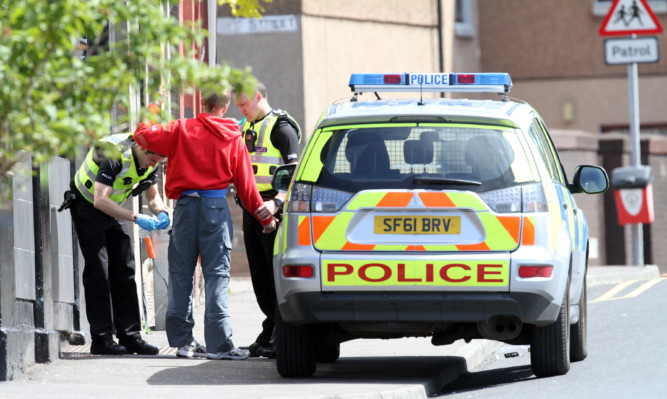An advocate who overhauled police stop and search has said it could take years of training for officers to get used to the new regulations.
John Scott QC, who chaired the government-appointed Advisory Group on Stop and Search, said the swift ban on “consensual” searches of children following a damning inspectorate report in March left many officers confused.
Some thought they were banned from searching children on any basis, even if they had a suspicion they could be carrying something that would warrant a statutory search, Mr Scott told Holyrood’s Justice Sub-Committee on Policing.
The advisory group went on to propose a raft of even more complex changes to search regulations, which are expected to be implemented in the Criminal Justice (Scotland) Bill.
It recommended the use of non-statutory or consensual stop-and-search should end when a new code of practice comes into effect – but police will still have the power to conduct statutory searches.
He has pledged to engage with the Scottish Police Federation (SPF), the The Association of Scottish Police Superintendents (ASPS) and rank-and-file officers to explain the new regulations.
“I have been up at Tulliallan and seen some very impressive training, inspirational training in fact,” he said.
“But a lot of that then gets shaken out of them when the sergeant is speaking to them at the start of their shift.
“So, it needs to get to all of those levels and one of the ways of doing it is seeing alternative ways of doing things in practice, so that they are confronted with real-life situations and they see colleagues who are more confident in the range of powers that they have without having to look at non-statutory.
“I’ve heard suggestions of anything from a year to four years as to how long it might take for that sort of transition to go all the way through.
“Obviously it should be absolutely done as quickly as possible.”
In his report, Mr Scott said the almost “overnight” ban on consensual searches of children within five days of the damning HMICS report was “unsuccessful”.
Mr Scott told the committee: “That was a policy that was announced and implemented in five days, it didn’t work.
“There was real misunderstanding about what the change was with some officers thinking ‘we can’t search young people at all, even on a statutory basis’, and that was never the case.”
He added: “There are officers who clearly felt to some extent that they need this.
“I heard evidence from younger operational officers who said, and seemed very genuine, ‘don’t take this away from me because I don’t think I will be able to do things properly’.
“I think they were wrong and I need to go back and meet with some of these officers and try and help as part of the process to try and explain it.”
